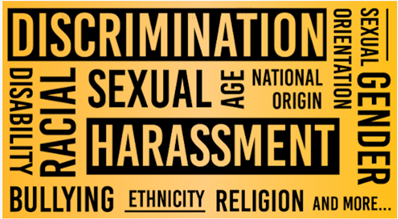1 Comments
Since establishing processes to notify us about concerns of sexual harassment affecting an NIH-funded project, we have handled extramural harassment allegations involving over 300 individuals. Sexual harassment, as the Advisory Committee to the NIH Director has noted (see page 7 of the report), is only one form of harassment and inappropriate behavior. The committee has also strongly supported using an expanded definition of harassment from the National Academies.
We agree. Harassment takes many forms including sexual harassment, discrimination, and other forms of inappropriate conduct that can result in a hostile work environment. We are committed to promoting safe and respectful work environments that are free from harassment. We do not tolerate harassment or discrimination of any kind anywhere NIH-funded activities are conducted. Dr. Francis Collins, the NIH director, has underscored this commitment, stating, “We can and will take action if there are concerns that a hostile work environment is affecting NIH-funded research.”
We have updated our anti-sexual harassment website to encompass the range of threats to safe and respectful workplaces at institutions receiving NIH funding. The updated site outlines actions NIH can take to address different forms of harassment, how to notify us (which can be anonymous), resources to evaluate workplace climate, and frequently asked questions. It also has a new section where you can easily find information on the numbers and types of harassment cases NIH handles involving projects at NIH-supported institutions, and the resulting actions.
For those concerned about harassment, discrimination, and other forms of inappropriate conduct at your institution, help is available. Because NIH is not a law enforcement agency, we strongly encourage people to report allegations of harassment or assault to the appropriate authorities.




Working on a safe place is the first thing I check before starting a position.
thanks Mike.